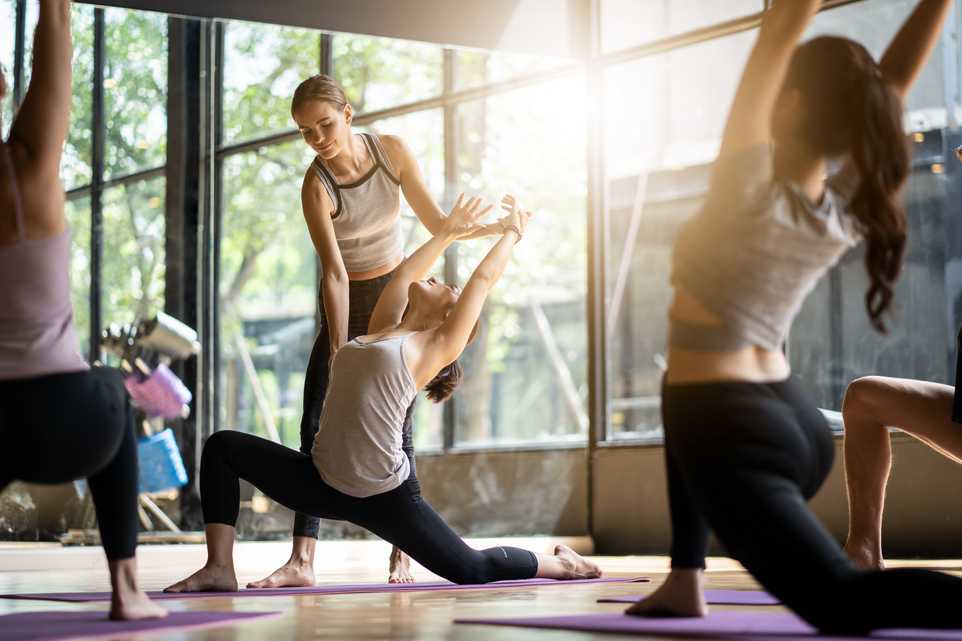
When looking for a Georgia personal trainer salary, there are many things to consider. These factors include the expected growth, whereabouts and certification requirements. Below you will see the expected salary and growth for this role. It is important that you know that the average salary for this role is not the same as the one in your city.
Average salary
In Georgia, salaries for Personal Trainers range from $18,319 to $101,573. The median salary is $51,879 per year. These salaries would include an average federal tax of 22% and state income tax of 6%. This means that a personal trainer working in Atlanta, Georgia could expect to take home $42,310 in a year, or $1,763 per paycheck.
Personal trainer salaries are affected by many factors including experience, location, commission and sales commission. These numbers are not intended to be a guideline for what a Personal Trainee can expect. They may work at gyms or fitness centers.

Certifications required
Georgia does not require a statewide certification for personal trainers, however they should have some education and training. Many employers seek high school graduates and GED holders with at minimum some college education. They will often need some certification such as CPR or first aid. A post-secondary qualification isn't necessary but can provide valuable knowledge and enable individuals to get started earlier. For those who do not have certifications, they may need to work with an experienced personal trainer to get more experience and knowledge.
The University of Georgia's Griffin Campus offers a certificate program in personal training. The World Instructor School offers this program. It consists of a 30-hour internship and eight weeks of coursework. The coursework includes classroom instruction, practical training, as well as a national certification test. The coursework covers a wide range of subjects, including exercise physiology, biomechanics, and fitness testing.
Localities
Georgia is experiencing an increase in personal trainers faster than any other state. According to the labor division, there should be a 24.7 % increase in employment from 2008 to 2018. This should create around 70 new jobs each year. Savannah is the top-ranked city for location. Sandy Springs and Alpharetta also make the top ten.
Georgia is diverse. It is not the most wealthy, but it offers great healthcare and freedom of business. It is also 26th in fitness. Personal trainers will find plenty of opportunities in its cosmopolitan populations.

Expected growth
Georgia personal trainers make on average 4.2% higher than the national average. Experienced individuals can expect to make 3.8% less. According to Georgia's labor division, the number personal trainer jobs is expected to rise by 24.7% in Georgia between 2008-2018. An average personal trainer's annual salary in Georgia is $38,000. The majority of Georgia's personal trainers have a bachelor's degree.
Georgia has a high prevalence of obesity. About 65% Georgians are obese or overweight. Personal trainers are required to help people maintain good health through nutrition and exercise. They will work with many people, including young children and the elderly. Some of these people might have joint problems or require special exercises.
FAQ
Which is more important: Exercise, diet, or sleep?
What you are looking to accomplish will determine the answer. If you want to lose weight, diet is the most important factor. If you are looking to build muscle mass, however, exercise is the best option. Finally, sleep is the least important factor since it only affects how well you perform during the day.
Can I exercise after eating?
It depends on what type of exercise you're performing. Avoid strenuous exercises after meals. It could cause stomach cramps. Light aerobic activities, such as walking or biking, are better.
What does nutrition do to your body?
By providing all the nutrients necessary for growth and development, nutrition helps your body function well. You can ensure adequate nutrition by eating a balanced diet rich in fruits and vegetables, lean meats, whole grains, and healthy oils.
Statistics
- In 2018, the World Health Assembly agreed on a global target to reduce physical inactivity by 15% by 2030 and align with the Sustainable Development Goals. (who.int)
- One study showed that adults who watch more than 4 hours of television daily had an 80% higher risk of death from cardiovascular disease. (heart.org)
- An estimated 110,000 deaths per year could be prevented (cdc.gov)
- Physical activity confers the following maternal and fetal health benefits: a decreased risk of pre-eclampsia, gestational hypertension, gestational diabetes (for example, 30% reduction in risk) (who.int)
External Links
How To
How to motivate you to exercise regularly
A fitness Routine is a set of exercises performed regularly for a specific period of time. It helps to tone and build muscle mass. Regular exercise improves cardiovascular health, blood pressure, cholesterol, risk of heart disease, stroke, diabetes, anxiety, stress and obesity, as well as other diseases like depression, anxiety and osteoporosis. In addition to these psychological benefits, regular exercise also provides psychological benefits like self esteem, confidence and mood, energy level, sleep quality and social interactions.
Why would you choose to make your own fitness program?
To lose weight, improve your health, and become fit, you need to start a fitness program. What makes a fitness routine so important? Let's find it out!
What does it really mean to exercise?
It's a minimum of three times per week that you engage in some form or activity such as running, swimming and yoga. It doesn't have to take you hours to exercise; 30 minutes is all it takes to burn calories, keep you fit, and help you stay healthy. You must stick to your plan. If you miss a day here and there, don't worry--just pick up where you left off next time.
How much time will I need to devote to my workouts?
The amount of time you spend on a workout depends on your level of activity. For moderate exercise, it takes 20-30 minutes. However, if you're new to exercising, try starting slowly with five or 10 minutes first. Once you've gotten used to it, increase the duration gradually.